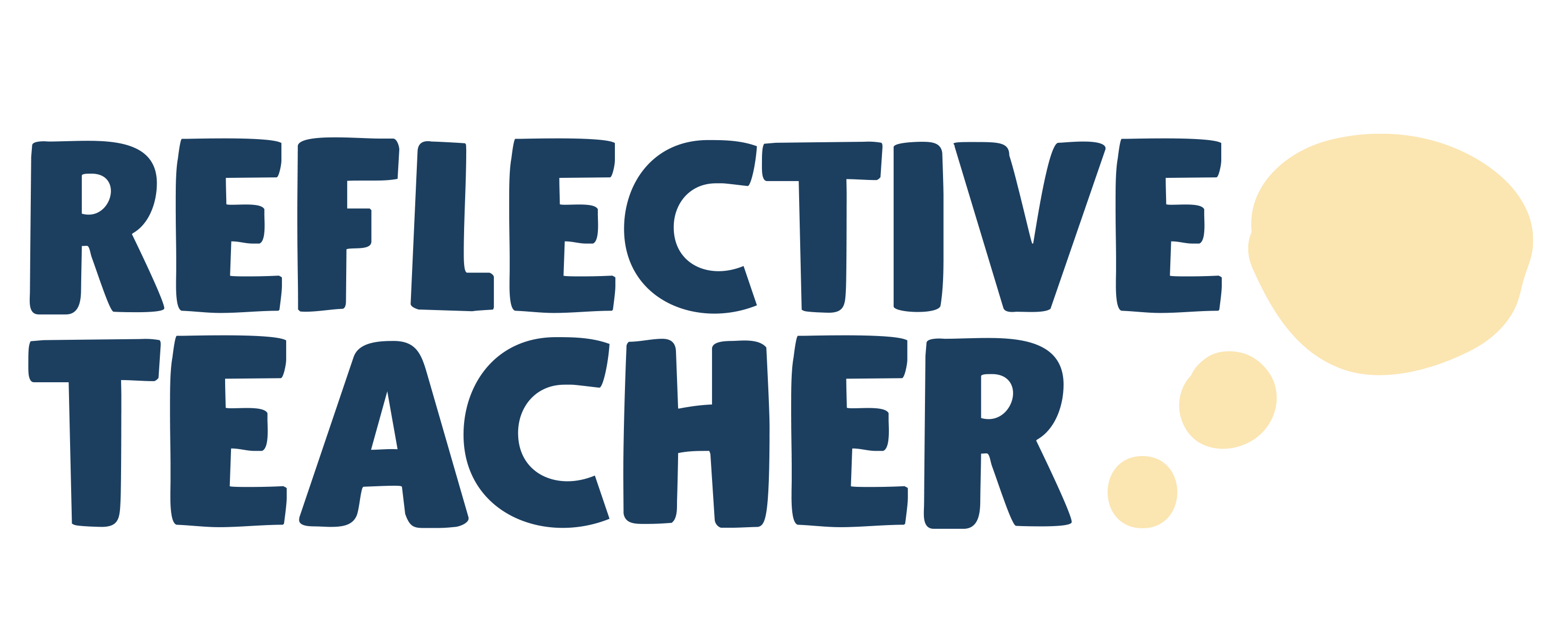Teaching is a dynamic profession that requires continuous growth and development. In the United Kingdom, as in many other countries, educators play a vital role in shaping the future of the nation. To meet the diverse needs of their students and navigate an ever-changing educational landscape, teachers must engage in a practice known as “Reflective Practice.” In this article, we will explore what Reflective Practice is, its significance for educators in the UK, and the benefits it offers to both teachers and their students.

What is Reflective Practice?
Reflective Practice is a systematic and intentional approach to self-assessment and self-improvement in teaching. It involves teachers examining their experiences, thoughts, and actions to gain a deeper understanding of their teaching methods, decision-making processes, and the impact of their actions on students. By critically analyzing their practices, educators can identify areas for improvement and make informed adjustments to enhance the learning experience.
Reflective Practice is based on the idea that teaching is not just a one-way transmission of knowledge but a complex and interactive process between educators and students. To be effective, teachers must adapt their teaching methods, strategies, and approaches to meet the unique needs of their students.
The Significance of Reflective Practice in the UK
Reflective Practice is highly significant for teachers in the United Kingdom for several reasons:
- Meeting Diverse Student Needs: The UK’s educational system is diverse, with students coming from various backgrounds and possessing different learning styles and abilities. Reflective Practice allows teachers to tailor their instruction to the specific needs of their students, ensuring inclusivity and equity in the classroom.
- Professional Development: Engaging in Reflective Practice is a cornerstone of teacher professional development in the UK. It helps educators identify their strengths and weaknesses and provides the basis for setting professional development goals. Continuous improvement is essential for meeting the ever-evolving educational standards.
- Evidence-Based Decision-Making: Reflective Practice encourages teachers to use data and evidence to make informed decisions about their teaching methods. By analyzing student performance, assessing the effectiveness of instructional materials, and considering feedback, educators can make data-driven choices that benefit both themselves and their students.
- Enhancing Teaching Quality: Effective teaching is fundamental to achieving better educational outcomes. Reflective Practice enables teachers to continually improve their instructional strategies, leading to increased student engagement, understanding, and success.
Benefits of Reflective Practice
- Self-Awareness: Reflective Practice promotes self-awareness among teachers. By examining their teaching practices and their impact on students, educators gain a deeper understanding of their strengths and areas for improvement.
- Adaptation to Student Needs: Teachers can adapt their instructional methods and materials to better meet the diverse learning needs of their students. This helps create an inclusive and supportive learning environment.
- Improved Classroom Management: Through reflection, teachers can identify classroom management issues and develop strategies to address them. This leads to a more orderly and effective learning environment.
- Better Problem-Solving Skills: Reflective Practice enhances teachers’ problem-solving skills. They become more adept at addressing challenges and making informed decisions to improve the learning experience for their students.
- Enhanced Student Outcomes: Ultimately, the primary beneficiaries of Reflective Practice are the students. Teachers who engage in reflective practice are better equipped to provide a high-quality education that results in improved student outcomes, including higher achievement and a love for learning.
Implementing Reflective Practice
Implementing Reflective Practice in the UK education system involves several key steps:
- Self-Reflection: Teachers should regularly take time to reflect on their teaching experiences. This can be done through journaling, discussing with peers, or using reflective prompts.
- Data Collection: Collect data on student performance, feedback from students and parents, and observations of classroom interactions. This data serves as a basis for reflection.
- Analysis and Goal Setting: Analyze the collected data to identify areas for improvement. Set specific, measurable, and achievable goals to address these areas.
- Action and Evaluation: Implement changes in teaching methods and strategies based on your goals. Continuously evaluate the impact of these changes on student learning.
- Peer Collaboration: Collaborate with colleagues and engage in peer observations. Sharing experiences and insights with other educators can be invaluable for growth.
Conclusion
In the United Kingdom, Reflective Practice is not just a buzzword but a fundamental aspect of teacher professionalism and student success. It empowers educators to better understand themselves, adapt to the needs of their diverse students, and continuously improve their teaching methods. As a result, Reflective Practice leads to a more effective, inclusive, and equitable education system that benefits both teachers and students.
To stay up-to-date with the latest research and best practices in Reflective Practice, consider exploring articles from reliable sources such as the National Education Union (NEU) and the Chartered College of Teaching. These organizations offer valuable resources for teachers in the UK to enhance their Reflective Practice and improve the quality of education for all students.



Comments are closed